Listen to this podcast on Spotify, Apple Podcasts, Podbean, Podtail, ListenNotes, TuneIn, PodChaser
Season 1, Episode 42
Host: Deepesh Patel (DP), Editor, Trade Finance Global
Featuring: Matt Gamser, CEO, SME Finance Forum (IFC)
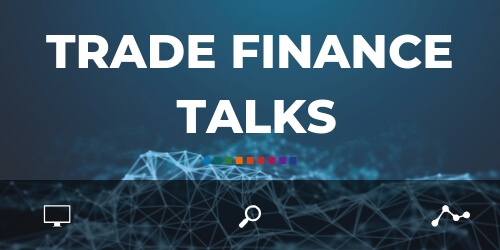
Welcome to Trade Finance Talks a podcast from Trade Finance Global. During this series, we’ll be hearing from global experts, as well as learning about the latest trends, technology and insights in the world of international trade and receivables finance.
Following on from TFG’s recent announcement of an industry partnership with the SME Finance Forum, today I’m joined by their CEO, Matt Gamser.
The Importance of MSMEs
Today we’re talking about micro, small and medium enterprises (MSMEs), and their importance in real world economic growth, job creation, and innovation.

Creating opportunities through MSMEs, particularly in emerging and developing markets is crucial, as it can help advance economic development and reduce poverty.
Micro, Small and Medium Enterprises (MSMEs) are one of the strongest drivers of economic development, innovation and employment. Access to finance is often identified as a critical barrier to growth for MSMEs. Creating opportunities for MSMEs in emerging markets is a key way to advance economic development and reduce poverty.
However, there is an MSME financing gap, to the magnitude of over $5 trillion USD according to the IFC’s recent analysis by the SME Finance Forum. Some 200 million businesses worldwide need financing to invest, grow and create new jobs, and they account for 9 out of 10 of business, half of global GDP, and two-thirds of job worldwide.
We wanted to investigate this, and discuss why governors, financiers and private sector players need to come together to support developments in the MSME sector.
Deepesh Patel (DP): Matt – Welcome to Trade Finance Talks! Thanks for coming on the show!
Matt Gamser (MG): Hi Deepesh, thanks for having me!
DP: Can you give us a 30 second elevator pitch – who are you, where are you from, and what do you do?
MG: I’m Matt Gamser. I run the SME Finance Forum, which was created by the G20 countries and is managed by the International Finance Corporation (IFC). It is a place for the finance industry to come together for shared learning, networking and public-private dialogue in the field of small business finance. We’re helping the finance industry grow stronger so that SMEs can get a better deal from them.

The $5 trillion USD MSME finance gap(?)
DP: So following on from your introduction to the SME Finance Forum, we can jump straight into the G20 Agenda and how it directly ties in with the $5 trillion USD MSME Finance Gap. How did you come up with this figure, and why is it so large? Do you think COVID-19 is likely to widen this gap amongst MSMEs, why so?
MG: I’m chuckling because I’ve tried to make this not too long a story(!) – the G20 was formed in the teeth of the last financial crisis and they decided that financial inclusion was something that needed to be a concern; not just restabilizing the financial sector and restoring its integrity, but also trying to make it serve more of the world. Their second decision was that inclusion needs to think about enterprises and not just about individuals. So the G20 decided to make ‘SME finance’ a part of their core agenda.
At that time, my colleagues from IFC, along with McKinsey, did some extrapolation to estimate what the gap might be for Micro Small Medium Enterprises (MSMEs), for credit around the world. They came up with a report called ‘$2 trillion and counting‘, because the number at the time was $2 trillion USD. Low and behold, a few years later, I was asked to join and form the SME Finance Forum and was challenged on this ($2 trillion) number. So, along with the IMF, World Bank and IFC, to recalculate the figure; we were wrong. Unfortunately, we were wrong on the low side, not on the high side! The figure only for emerging markets and for ‘formal’ Micro, Small and Medium Enterprises, this figure came to $5.2+ trillion USD. If we add in rich countries and informal sector enterprises, it becomes much more of a heroic extrapolation, but we can be looking at figures more like $8-9 trillion.
In addition, we’ve found that people who are talking about cash locked up in payables and receivables to SMEs, the figure is north of $15 trillion USD. So if SMEs that are engaged in trade, are waiting on $15+ trillion of receivables it doesn’t seem that heroic to extrapolate that there’s possibly a credit gap and in the area of $9+ trillion USD.
World Bank’s IFC – Helping SMEs during the COVID-19 Pandemic
DP: Let’s take a step back and try to connect the dots. And I think it’s worth bringing the impact of COVID-19 into the mix here. How do governments provide finance that can support MSMEs, and how does this money flow, from say, a government, to a multilateral like IFC / World Bank, to an MSME? Has this changed since the onset of the pandemic?
MG: An institution like the IFC, doesn’t get much in the way of ‘government grants’ to do its business. It is like an investment bank owned by 184 countries. It operates off its own balance sheet, and uses its own capital, and borrows in the market to do everything from straight lending, to equity, to structured finance, as well as other capital markets initiatives.
What we’ve got right now from our government owners is some fast track approvals to put some liquidity into the system to help our clients around the world; whether they’re financial institutions, or real sector institutions. We’ve been initially concentrating on making sure that liquidity is preserved, to deal with the initial emergency. Now we’re turning our attention to the recovery mode and how to make sure that our resources are going to get to Micro Small and Medium Enterprises.
IFC helps SMEs indirectly in two basic ways: we have 800 or so financial institutions around the world that we support, and we make sure that they have the liquidity in hand so that they can be supporting in their local markets, a second way is we’re also supporting large corporations, which may have supply and distribution chains that involve thousands and thousands of SMEs, making sure that their liquidity also preserved.
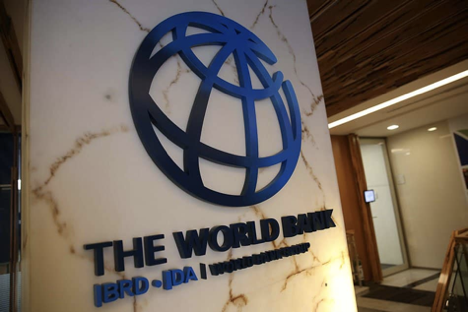
DP: Is there a mandate for financial institutions which are supported by the IFC to provide financial support to MSMEs, particularly as they are perceived as high risk?
MG: IFC is slightly different from a straight investment bank in a couple of important respects: we have two preconditions for every relationship that we establish, whether with a financial institution, or a real sector company. The first thing is that there has to be a development impact – a clear, measurable development impact of what our money is going towards, and that’s with a focus on emerging markets. The second one, is that our deals have to have additionality. This means that our deals have to do something that wouldn’t already happen with the private sector doing the deal by itself. That becomes often one of the most complex discussions we have with our government official board about whether we should do a deal or not. So Micro Small and Medium Enterprise support is very often a key element of both the development justification and the additionality in the deals we are involved in.
DP: So let’s talk about solutions, perhaps starting with technology, which we’ve seen a rapid advancement in over the past decade due to more data, integrated systems and changes to the way we work and do business. Can you discuss some ways technology IS helping MSMEs access finance?
MG: Absolutely, technology is the critical factor. Up until recently, SMEs have been a real trouble for financial institutions. And the reason that they’re becoming more of an opportunity for the institutions is because of technological change, and even more specifically; the more that SMEs are moving their commerce and their payments from analogue to digital. In other words from paper and cash to electronic, the more opportunities are opening up to solve the fundamental problem that existed before, which was the excessively high cost of gathering the information you needed about SMEs, in order to manage the risk of your financial relationship with them. FIs had no problem knowing in principle on how to manage the risks of dealing with SMEs, the trouble was, we couldn’t afford to at any scale; the people intensive ways that are better suited to dealing with corporates were not suited to dealing with SMEs. Now things are changing. Those that are at the forefront of the change are the ones who are figuring out how to help SMEs make this transition and how to capitalise on it through making sure they have a hold of that data, and that they have a hold of it real time.
ARTICLE: Finastra Exclusive – Innovating to close the trade finance gap
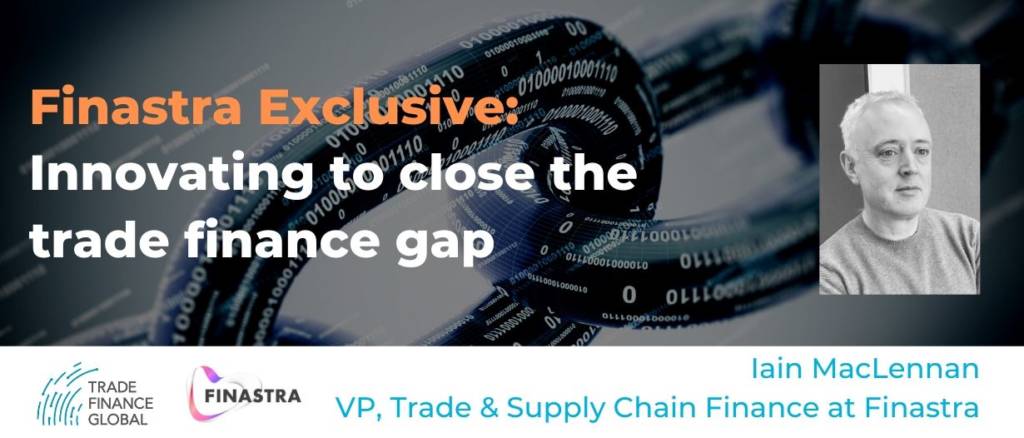
DP: Where are the largest opportunities for technology within MSME finance and how can we drive more innovation in this sector?
MG: I often say that trade finance really has seen very little change today from 14th century Venice! Maybe we don’t have the sealing wax on the documents, but we still have all the paper we don’t need, and all the intermediaries we don’t need. I like notaries as much as anybody else, but they’re not needed in this digital era.
The combination of the physical side of trade and the money side of trade, is why it’s so hard for small businesses to trade across borders, even though we know that those that can succeed there tend to grow faster and create more jobs. In principle, it’s better to have a diversified way to export, but our system hasn’t supported that. And so there’s a huge opportunity there. There are also huge opportunities in supply chains. With new digital processes and platforms, we’re seeing ways that a full supply chain can be financed. And similarly, we see the way that full distribution chains can be financed.
It’s the non-banks that are making the biggest strides, but they don’t have the easy access to capital that banks do. But we’re seeing breakthroughs here. That’s where I think the breakthroughs are going to come – either in alliances between banks and non banks or through some of the big technology companies, such as Alibaba, Amazon and Google. They don’t need banks to have access to money. Right? So they might come in and take over the whole thing.

Governments and the Digital Island Effect
DP: Can governments and policymakers accelerate the digitisation and implementation of technology within financiers, financial systems and MSMEs?
MG: The main problem, I would say, is still institutional; you need institutional buy in at scale, to demonstrate what technology and certain platforms can do, and that’s where governments and policymakers can come in. It is not in the natural inclination of the big players in different systems to come together and figure out how to be interoperable and harmonised right now. And that’s where the intervention of governments can be helpful. What governments don’t need to do, in my opinion, is build the systems themselves. I think these systems are already largely built by the private sector.
But the problem is that they are fragmented and there are too many different groups going their own way.
ARTICLE: What SMEs expect from the WTO

Interoperability and the Prisoner’s Dilemma
MG: I’m convinced that the private sector is rather in a prisoner’s dilemma right now, where the one who cooperates is dead. And, and so everybody’s still staying separate and holding things in their own groups. And so governments have to come in and fix this market imperfection and try to promote and pick the winners. There are lots of competing platforms now, but governments should encourage folks to come in and create the scale to see who ends up being Betamax and who becomes the VHS.
Right now we have unfortunately, there are thousands of tiny trials of ways of doing distributed ledger technology related to SMEs. What we need, is to have a handful that really bursts out at scale so that everybody signs on.
MSMEs – Looking Beyond COVID-19
DP: As an MSME right now, what are three pieces of advice you would give to them during these uncertain times?
This would have been advice before, but it’s even more important now. Don’t be satisfied with low levels of service from your partners (e.g. technology suppliers); be ready and willing to change because there are more and more alternatives for you out there. Being patient now could be the difference between survival and failure. So if your provider isn’t doing the right things now, e.g. to get you on the government programmes, find somebody else, because there are people out there that are looking for you.
The second piece of advice; SMEs need to keep lobbying to be considered in all this because the politicians tend to say ‘yes, SMEs are really important’, but when you actually look at when the programmes are implemented, they don’t get out there to the SMEs – whether we’re talking the emergency programmes, or whether we’re talking to regular programmes, but since we’re in COVID-19, you have to keep a special eye on the emergency programmes and make sure that the government’s are following up. There is also a long time lag between when the parliamentarians make the policy and when the policy gets implemented by the agencies. And unfortunately, we’ve seen a lot of problems arise in that transition.
These are some of the issues that we will be discussing in the SME Finance Forum, (hopefully) held physically, if not virtually, in Bangkok this October.
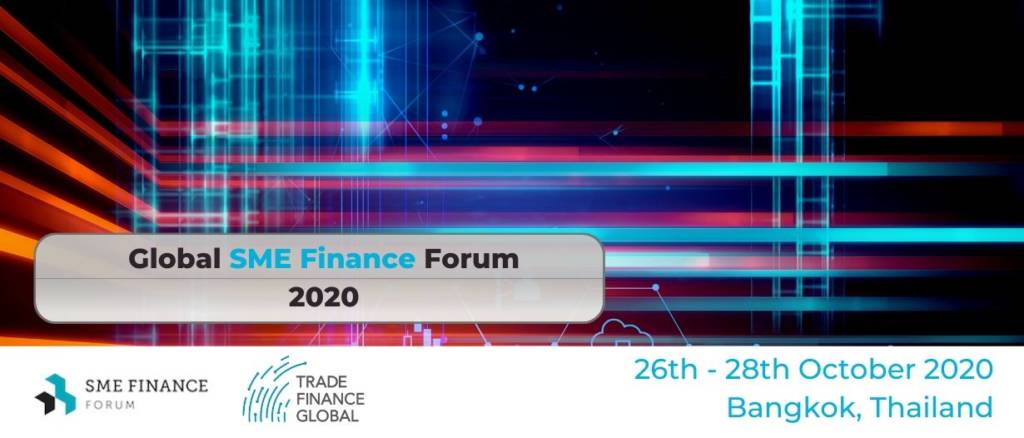
SME Finance Forum – Initiatives

Competition – What will SME Finance look like in 2030?
The Global SME Finance Forum 2020 meeting connects more than 700 senior bankers, tech leaders and policymakers from 80 or more countries. It is the largest, most high-level, technically in-depth meeting on SME financing that occurs in the world each year.
To celebrate the new decade, this year’s Global SME Finance Forum will look much farther forward, to imagine where we might be in SME financing a decade from now. Following our practice of leveraging as much knowledge sharing as we can from our membership and our wider public audience, we are launching a public “Call for Insights” on what SME finance will look like in 2030. Best articles will be shared in a special report to be issued at the conference, and the authors will be considered for speaking roles at the event.
📢CALL FOR INSIGHTS: SME Finance Outlook 2030
Do you have a unique vision on what SME finance will look in 2030? Share your ideas with the SME Finance Forum.
Deadline: 31 July ⏰
Now launched! Summer Edition 2020
Trade Finance Global’s latest edition of Trade Finance Talks is now out!
This summer 2020 edition, entitled ‘Coronavirus & The Fourth Industrial Revolution’, is available for free online, covering the latest in trade, export credit insurance, receivables and supply chain, with special features on fintech and digitisation.
 Australia
Australia Hong Kong
Hong Kong Japan
Japan Singapore
Singapore United Arab Emirates
United Arab Emirates United States
United States France
France Germany
Germany Ireland
Ireland Netherlands
Netherlands United Kingdom
United Kingdom
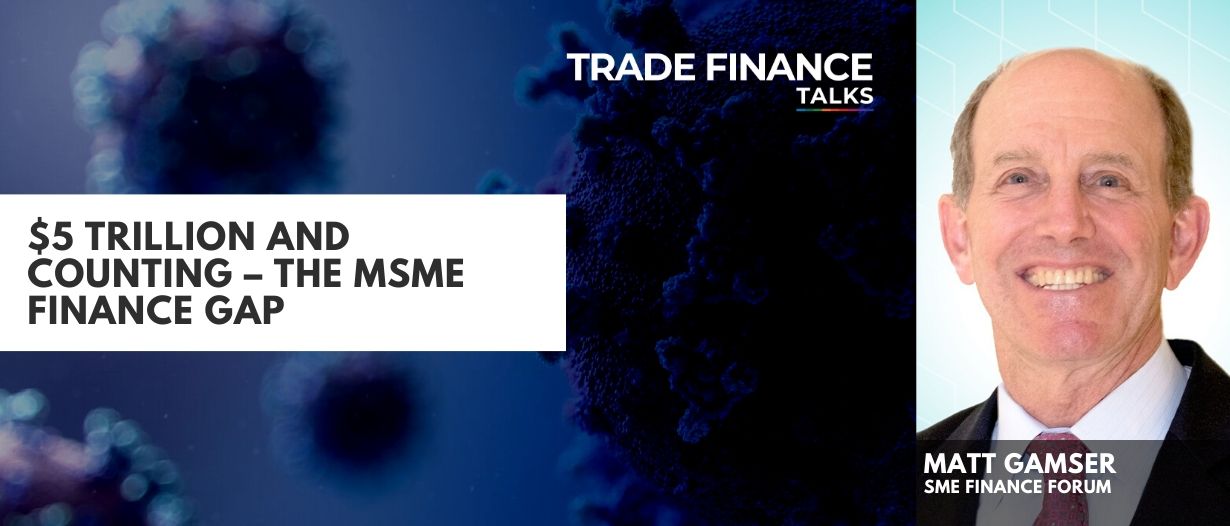
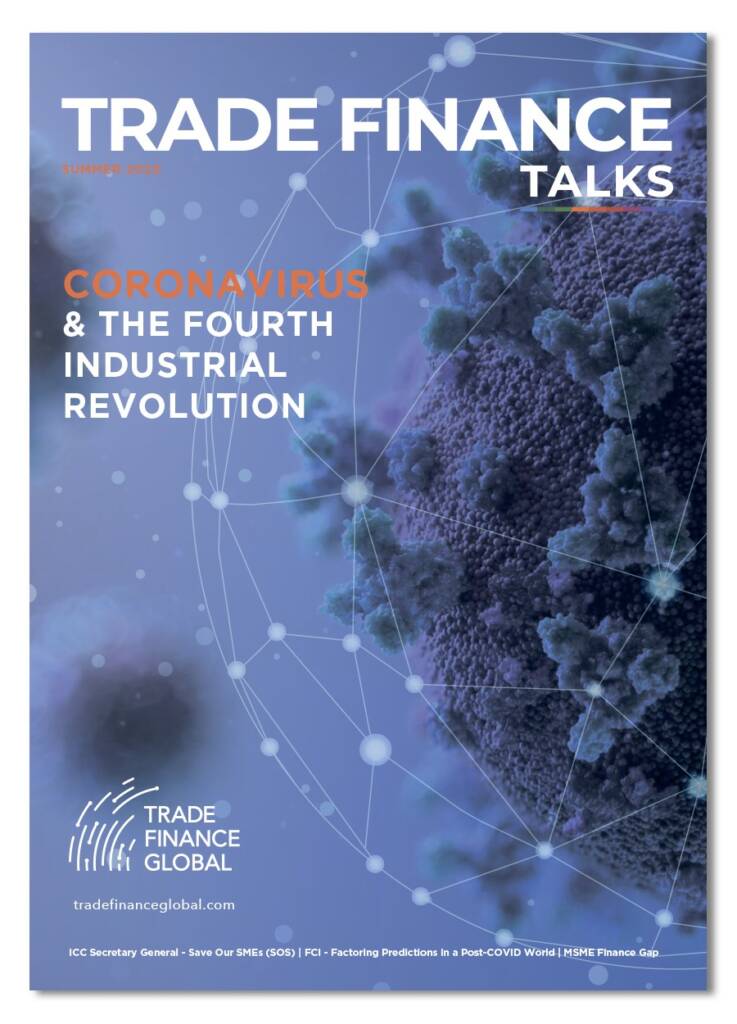
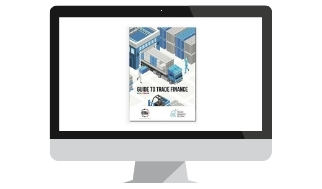








Comments are closed.